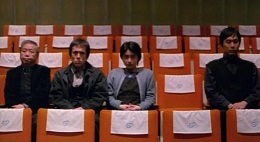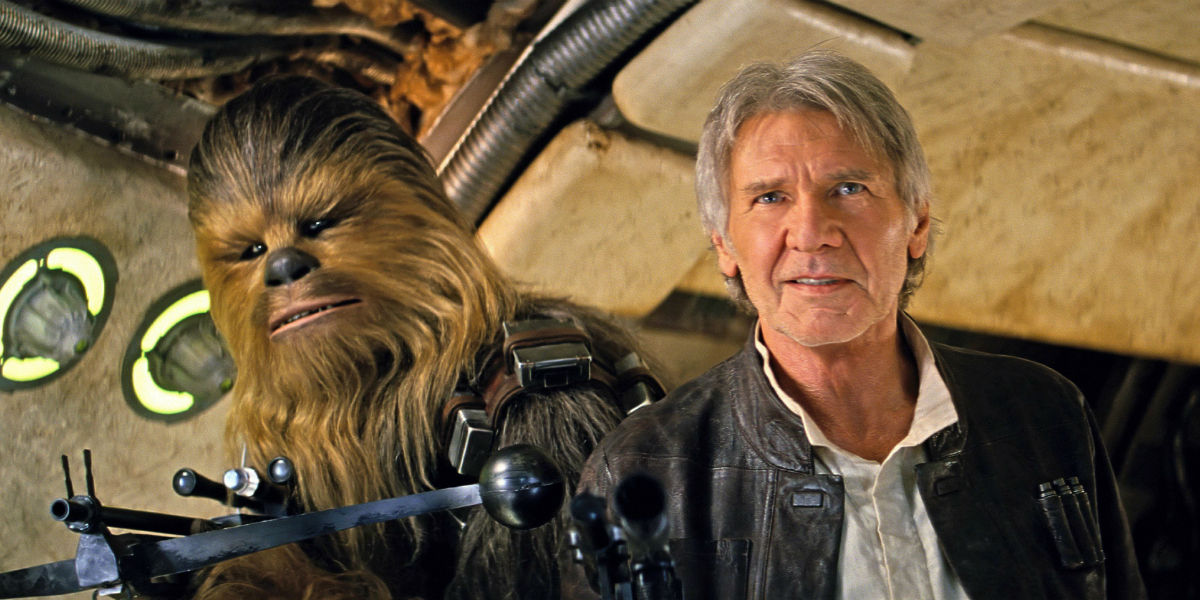Analysis
So the biggest game of the year - well, in America, anyway - has come and gone. A lot of hearts were lifted that night along with the coveted trophy, but so, too, were many dreams and expectations shattered. So what can we take away from it? Let’s find out.
Pre-Game Analytics: The Panthers pounced on the championship grass with the best record in the season, suffering only one unexpected, come-from-behind loss in the Peach State. They topped the NFC in an explosive display of overwhelming offensive power, with field marshal Cam Newton leading the charge as one of the most talented, mobile, and confident QBs to grace the game in many years. Behind him stood the nimble Greg Olsen, the most flexible tight end in the biz and Cam’s go-to guy when the chips are down, as well as Jonathan Stewart, Corey Brown, and a strong offensive line that kept this team cranking out the points like water at a bottomless well. Add in a solid defense, and you have the makings of a quintessential “dream team,” the ultimate, unstoppable predatory force bounding towards Super Bowl history.
Unfortunately, their opponent at the crossroads of destiny came equipped with all the tools to grind their offensive juggernaut to a halt. The Broncos rode into the big game on the back of their unrivaled defense, hedged by the twin walls of DeMarcus Ware and Von MIller, dragging games to a crawl and subjecting every Quarterback they faced - including Tom “Best by Test” Brady - to a brutal whipping. Their offense, in comparison, is relatively lackluster. They coasted by on the skill of support QB Osweiler and the speedy Emmanuel Sanders, but eventually saddled up their old war horse who should have LONG been put out to pasture: Peyton Manning, who after a powerful showing early season, slipped into a decline that made replacement mandatory. With as much admiration as I have for Manning as one of the greatest in history, he overtook his prime by a parsec long before this point, and after his humiliating performance two years ago, I didn’t have much hope for Denver’s scoreboard as they lurched their way to the final showdown.
Expectations: Can’t say I had a favorite or preferred team coming into this, to be honest. On paper, the Panthers are the stronger, or at least more well-rounded team, though they’ve never faced a defense as fast and as fierce as the Broncos. In a way, this was an ideal match up: the tops of their respective divisions, with the best offense squaring off against the best defense, in what would undoubtedly be a hard-fought match. While I spun no prophecies of victory for one or the other - my skills with the crystal ball being less than optimal - I did predict that any necessary team adjustments to made coming into the game belonged to the Cats. Defense wins championships, so goes the cliche with more than a germ of truth, and if the Panthers came in expecting to knock ‘em back to the end zone for 30 or 40 points, they were due a very rude awakening.
First Half: The gridiron tussle proceeded as expected, with both teams limping forward at a snail’s pace. It’s already obvious from the start that Cam and his wrecking crew were completely unprepared for the lightning-fast blitz tactics of the Denver bulwark, who stopped them at every turn. Unfortunately, the Broncos’ own failings in the offensive department laid solely at the leaden feet of Mr. Manning, who was looking every bit his 39 years, plus ten. The Mile-High boys managed to squeeze out a field goal - the first time Carolina’s trailed in a game, not counting their Atlanta fluke - but things were otherwise unremarkable until Miller blazed past the Panthers line and stripped Newton of his ball and his dignity, landing Denver the first touchdown in the game. After that, a not-so-quiet desperation sank into the opposing team, and Atlanta’s golden boy grew more desperate - and jittery - as his options dwindled down to one hand. With the Broncos slamming the door on the running game and with every passing target smothered in bulky white jerseys, it’s no exaggeration to say that Newton pretty much carried his team’s offense for the entire first half. There was a little light at the end of the tunnel when they pieced together something of an offensive drive to finally put points on the board, but what had become by that point business as usual set in once again, with turnovers, fumbles, and foul-ups galore on both ends. And again, while the crippled performance of the Panthers can be blamed on their thorough defanging by the Broncos line, Denver’s own failures laid squarely with the ineptitude of the once almighty Manning, whose inability to produce anything on 3rd down looked scarily close to his debacle in 2014 - and had the Denver defense moving through a revolving door.
Second Half: Both teams hit the field with seemingly no change in strategy; the neutered Cats hacked up few offensive options and an increasingly worn out and frustrated Quarterback, while Manning continued his Stevie Wonder-levels of visual perceptiveness as the mounting strain on the Denver defense began to show. Fortunately, they still had enough gumption to put the anaconda squeeze on Cam and his boys, suffocating any signs of life enough times so that Manning can strike lucky and get his men into field goal range to extend their lead. Miller had punched the Panthers into a hole with his early touchdown, and it seemed like Carolina would not see the light of day thereafter. It didn’t help that the Football Gods themselves were sporting brewskies from Rocky Mountain bars that night; the usually dead-accurate Graham Gano missed a 44-yard field goal by a hair, which, while unlikely to have been a game changer, could have provided a much-needed morale boost. Fortunately, the Broncos Great Wall was starting to bare a few loose bricks since the Denver offense couldn’t keep them off the field for longer than five minutes. Another field goal widened their lead, but the Panthers were still one touchdown away from snatching the high ground, and fought like they knew it. Everything changed in the game’s apogean quarter, when the now-thoroughly wound-up Newton was stripped yet again of the ball...but for reasons only he, God, and the turf know, hesitated to drop down on the runaway pigskin, turning what could have been an easy recovery into a 1st and Goal for the Broncos. With the winds of opportunity blowing on the lee shore, Manning suffered a startling lapse of competence and steered his team to its first offensive touchdown. In a surprise move, they opted for a two-point conversion; even more surprising, Manning nailed it, and with the board now sitting at 24-10, Carolina would have to make two touchdowns in less than 4 minute to even tie. With the inevitable in sight, the final few minutes wound down to a quiet conclusion, punctuated here and there by Cam’s tantrums. The final insult came in the last eleven seconds, when what we can only assume to have been a little unsportsmanlike jostling not only cost the Panthers some yards, but also sped up the clock by ten seconds - denying them even the opportunity of one final blaze of glory.
Concluding Thoughts: Peyton finally gets his second ring, though I can’t say it was well-earned. If he’s smart, he’ll exit on a high note and ride off into the sunset, instead of subjecting his fans to another season of his unstable and rapidly fading star. The real standout of the game is the Denver defense: Ware, Miller (who rightfully got MVP) and the rest of the crew not only held down the lid on the league’s most explosive offense, but they were effectively responsible for both of the Broncos touchdowns. Though I feel a bit bad for Cam and the Panthers, I know they’ll be back; their set-up has real staying power, and this won’t be their last championship. They just happened to have the worst possible match-up, and suffered for it. At least in this case of the age-old proverbial encounter between irresistible force and immovable object, the object nets a commanding - and well-deserved - victory.








